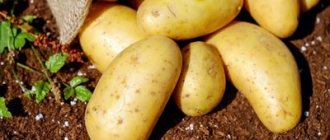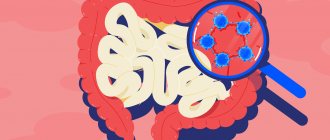Vitamin B12 is retained in the body, although this is rare for water-soluble vitamins. It has analgesic (moderate), antiallergic and antidepressant properties. It is a heat-stable, water-soluble vitamin, but is sensitive to light. The body stores it in the liver for several years.
Vitamin B12, like all other B vitamins (vitamins B1, B6), plays an important role in the release of energy. However, unlike other vitamins in this group, it plays an antiallergic and detoxifying role (promotes the removal of toxins from the body). It is sometimes used for therapeutic purposes, in particular to combat anemia.
The history of vitamin B12 began in 1926 with the study of anemia (William Murphy), when research showed that liver extracts could cure some forms of anemia, including pernicious anemia. It was subsequently isolated from the liver (George Whipple, George Minot), for which these scientists were awarded the Nobel Prize.
Liver was initially used as a raw material for the production of vitamin B12, 1 ton of which can provide 25 mg of this vitamin, but its artificial synthesis has now been mastered.
Vitamin B12 exists in the body in various forms of cobalamin, mainly hydroxocobalamin and cyanocobalamin (hydroxocobalamin differs from cyanocobalamin by the presence of a hydroxyl group in the first compound, which is replaced by a cyanine group in the second case). Most often, vitamin B12 enters the human body in the form of cyanocobalamin.
What is vitamin B12?
Vitamin B12 is a water-soluble vitamin that is heat stable but moisture sensitive. It is stored in large quantities in the body (in the liver) for several years. In the form of cyanocobalamin, it is present in nature as a dark red crystalline powder, odorless and tasteless. The color is due to the presence of a cobalt atom in its chemical composition. Strongly inactivated by light, strongly acidic or strongly alkaline solutions. It is hygroscopic, that is, it absorbs moisture from the air. Because of this, its weight in air can increase by up to 12%. Therefore, it must be stored away from air and any source of moisture.
The human body is not able to synthesize vitamin B12 itself, so its deficiency must be replenished from food or through dietary supplements or injections. Vitamin B12 is absorbed in the small intestine in the presence of calcium, and after binding to the secreted gastric juice of a special transport protein, it penetrates the mucous membrane.
In normal condition, the human body contains about 5 mg of vitamin B12. It is stored mainly in the liver (from 2 to 3 mg, which is approximately 60% of the total amount), which represents a significant reserve and can satisfy human needs for 3-5 years.
Excess vitamin B12 is excreted in bile, urine, and also in skin cells that begin to peel off. In this case, anaphylactic reactions (itching, urticaria, rash), acne, or red urine coloration may occur, which requires immediate cessation of treatment.
Where is B12 found?
According to generally accepted standards, it is believed that meat eaters receive vitamin B12 in sufficient quantities and there are no more complete sources for obtaining this vitamin. But in practice, I have not met a single non-vegan or non-vegan who would bother taking tests to check the amount of bacteria in the body, so I will not talk about the usefulness of the sources. I'll just tell you how to get B12.
- Dairy Products and Eggs Vegetarians who eat milk and eggs believe they are getting enough B12. But these products contain very little vitamin; to replenish it you will need to eat a large number of eggs, which are an allergen and contain a large amount of cholesterol. And milk in large volumes causes bone fragility. Read more about the dangers of milk.
- Shiitake mushrooms and, in smaller quantities, brown champignons contain a lot of this vitamin. Add them to hot dishes or salads.
- B12 Fortified Products Soy milk and yogurt, as well as other plant milk products, often have additional vitamins added. Check the packaging information to be sure.
- Spirulina and nori algae According to some reports, algae contain a large amount of vitamin B12. But as a result of sixty years of research, it was found that they contain an inactive analogue of the vitamin that is not properly absorbed by the body. When consuming this type of B12, tests will show sufficient reserves of the vitamin, although in fact the body will experience a lack of it.
- Meat and fish products In modern conditions, it is generally accepted that people get the required amount of vitamins from meat and dairy products, as well as eggs, some types of fish and seafood. But in fact, not everyone who eats the above foods completely replenishes their B12 supply.
Why does the body need vitamin B12?
Vitamin B12 is involved in providing energy to the body (like all other B vitamins), but also plays a role in cell growth and DNA synthesis. It also has an antiallergic effect and promotes detoxification of the body.
Here is a list of the main functions of vitamin B12:
- in the form of coenzyme B12 plays a role in cell reproduction (in the gastrointestinal tract, nervous system, bone marrow) and promotes growth
- is a powerful anti-anemia agent responsible for the formation of red blood cells in the bone marrow
- promotes the normal functioning of the nervous system, including a beneficial effect on the myelin sheaths that protect the nerves
- participates in DNA synthesis
- has an analgesic effect, as well as an anabolic effect
- promotes detoxification of the body
- essential for the metabolism of carbohydrates, proteins and fats, which ensures its role in energy production
- promotes iron absorption;
- has hypoallergenic properties;
- has a tonic effect
- helps prevent the production of homocysteine in the blood (most often together with vitamins B6 and B9); high concentrations of homocysteine increase the risk of cardiovascular disease and are toxic to brain neurons, causing Alzheimer's disease, depression, and schizophrenia.
It is important to note that there is a synergistic effect (action in one direction) with folic acid (vitamin B9).
Signs of deficiency and excess of cyanocobalamin
Vitamin B 12 deficiency can cause anemia. The process of natural production of deoxyribonucleic acid is disrupted. A lack of cyanocobalamin may be associated with:
- refusal of meat and dairy foods;
- diseases of the gastrointestinal tract;
- taking anticonvulsants or birth control medications.
With a constant deficiency of cyanocobalamin, the process of hematopoiesis is disrupted, depression, insomnia, and loss of appetite occur. In particularly difficult cases, anemia is possible. At the first signs of illness, you should consult a doctor and undergo tests that will confirm a lack of vitamin.
Hypervitaminosis is less common; it is almost always associated with taking artificially synthesized drugs or chronic liver diseases. By eating a balanced diet, it is impossible to exceed the daily dose of cyanocobalamin.
Requirement for vitamin B12. Instructions for use
The Recommended Daily Allowance (RDA) for vitamin B12 averages 3 mcg per day (for a healthy adult), but may vary depending on age and physiological status. So the dose should be increased during pregnancy and lactation. Please note that some substances, such as copper and vitamin C, have a negative effect on the absorption of vitamin B12.
| Age/physiological status | Recommended average dose (mcg) |
| from birth to one year | 0,3-0,5 |
| from one to 3 years | 0,7-1,4 |
| from 3 to 15 years | 2-3 |
| adult women, men | 3 |
| pregnant women, nursing mothers, elderly people | 4 |
Myths about B12
Very often the body does not receive the required amount of B12, although its owner is sure of the opposite. Believing in established myths, many are unaware of the lack of this vitamin.
- MYTH 1. I eat meat, which means I get B12. As we have already figured out, carnivores replenish B12 when they eat herbivores who receive the vitamin from plants. But in the meat and dairy industries, animals are fed formulas to produce meat and milk as quickly as possible. Many of them do not even have the opportunity to walk on the grass and look at the meadows; we are not talking about eating fresh vegetation. Such animals themselves suffer from a lack of B12 and their meat will not be able to compensate for your lack of vitamin.
- MYTH 2. B12 is synthesized in the human body. Many studies confirm that the human body was indeed once capable of supporting life and promoting the proliferation of B12 bacteria. But in modern living conditions in megacities, our body has lost the ability to independently generate bacteria without their supply from the outside. Don't believe me? You can check! Just don’t forget to get tested regularly during the experiment; B12 deficiency is very dangerous!
- MYTH 3: I can get B12 from greens like cows If you're going to eat your lettuce and tops straight from the garden, you might be on to something. In most cases, we still wash our greens before eating so as not to eat bacteria worse than B12. Washing water, chemicals and other treatments of plantations during plant growth kill many harmful and beneficial bacteria. The chemicals themselves are very dangerous, but it is better to wash food before eating and get B12 from other sources.
- MYTH 4. Plant/artificial B12 is not absorbed B12 as a food supplement is absorbed, but according to the results of many studies it is worse than its “natural” counterpart. Modern manufacturers take this factor into account, increasing the dose of the vitamin several times. Vitamin B12 is considered harmless and excess is excreted from the body in urine, so there is no recommended maximum daily intake. Follow the instructions on the package, take breaks between courses and choose the source of the vitamin as methylcobalamin instead of cyanocobalamin, which negatively affects the body if you have kidney problems. I recommend this B12 complex. To determine the amount of vitamin in the body, get tested regularly.
Excess and deficiency of vitamin B12
Vitamin B12 is non-toxic, that is, even with an overdose, the health risks are extremely low (with a strong excess, acne can occur). A lack of vitamin B12 can lead to anemia or allergies.
There are two main reasons for B12 deficiency:
- malnutrition, particularly among vegetarians;
- intestinal malabsorption (poor absorption), previous surgical operations on the stomach or intestines, chronic intestinal diseases, celiac disease (congenital intolerance to the protein of cereals, leading to impaired absorption in the small intestine), helminthic infestation.
Due to the fact that vitamin B12 reserves in the body remain for several years, a deficiency of this vitamin may not appear immediately, but months or years later. Deficiency occurs when vitamin reserves are reduced to a tenth of their original state.
Manifestations of vitamin B12 deficiency:
- anemia, up to the so-called “pernicious anemia”, which is manifested by severe general fatigue, pallor of the skin, loss of appetite, and, as a result, weight loss, shortness of breath, neurological disorders (tingling and weakness in the legs, bad mood, memory loss, dementia ) and hematological disorders (red blood cells stop dividing, which leads to a decrease in their number and to anemia)
- digestive disorders: nausea, constipation, colitis
- inflammation of the tongue (glossitis)
- decreased immune defense
- muscle pain
- allergic reactions.
What is the best way to preserve vitamins when cooking?
Products rich in vitamin B12 perfectly retain the active substance even after heat treatment. Other B vitamins do not have this property. Cooking veal at a temperature of 200 ° C for 45 minutes leads to a loss of 25% of cyanocobalamin, boiling milk for about 5 minutes - to 30%. Even taking these features into account, it should be remembered that heat treatment of products should be minimized. If boiling milk is extended to 20 minutes, all vitamins in it are completely destroyed and its calorie content decreases.
When preparing meat dishes, it is recommended to add sugar. This trick cuts the cooking time of steaks in half and helps preserve vitamins and nutrients.
Products for vegetarians containing B12
Scientific research in recent decades has proven that plants do not contain a useful form of vitamin B12 for humans. Eggs, milk and its derivatives, contrary to popular belief, are not a reliable source of the vitamin.
Where B12 is found in sufficient quantities:
- Vitamin-enriched breakfast cereals (cereals), nutritional and brewer's yeast, plant milk.
- Vitamin supplements. As a rule, vegetarians get vitamin B12 from them, as from the most reliable source.
Some vitamins may be found in the following foods:
- tofu cheese, tempeh bread, miso paste, provided that cobalamin-producing bacteria were involved in the cooking process.
- natural farm vegetables, fruits, berries and herbs grown on cobalt-containing soil, without treatment with chemicals.
The presence of the vitamin in seaweed is often questioned or considered negligible. Many of them contain an inactive form of the vitamin, which is not actually absorbed, but affects the quantitative indicators of its level when analyzed.
Should You Take Vitamin B12 Supplements?
Vitamin B12 supplements are recommended for people who are at risk of deficiency. These include older people, pregnant or breastfeeding women, vegetarians and vegans, people with bowel problems and those who have had stomach surgery.
Vitamin B12 found in fortified foods and supplements is synthetically manufactured, making it suitable for vegans (16). Vitamin B12 supplements can be found in many forms. You can swallow, chew, drink, inject them intramuscularly, or place them under your tongue.
Studies have shown that vitamin B12 taken orally and given intramuscularly are equally effective in restoring vitamin B12 levels in people with deficiency (40, 41, 42).
In fact, a study found that people with low vitamin B12 levels replenished their stores to normal levels after 90 days of either taking supplements or taking injections (41).
Conclusion:
Vitamin B12 supplements are recommended for people who avoid eating animal products or have trouble absorbing it. They can be found in different forms, and doses range from 150 to 2000 mcg.
Summarize
- Vitamin B12 is a key nutrient your body needs for many important functions.
- It can be found in large quantities in animal products, fortified foods and dietary supplements. Some of the richest sources are liver, beef, sardines, shellfish and dairy products.
- If you're looking to increase your vitamin B12 stores or prevent vitamin B12 deficiency, eating these foods can significantly improve your overall health.
Sources
- https://www.silazdorovya.ru/v-kakix-produktax-soderzhitsya-vitamin-b12/
- https://greenvegan.ru/zdorove/vitamin-b12-gde-soderzhitsya-kak-prinimat-defitsit-b12-u-veganov/
- https://myvegan-club.ru/posts/article/vitamin-b12-dlya-vegetariancev
- https://PolzaVsVred.ru/medicina/v12-vitamin-produkty.html
- https://WomFit.com/pitanie/dobavki/produkty-soderzhashie-vitamin-v12.html
- https://FitZdrav.com/pitanie/produkty-soderzhashie-vitamin-v12.html
- https://www.magicworld.su/pitanie/908-vitamin-b12-produkty.html
[collapse]






